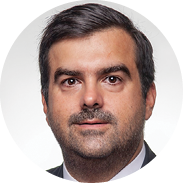Duarte Marques, PSD Member of Parliament
The fight against the pandemic caused by Covid19 forced the adoption of a set of measures that destroyed many European economies. At the request of governments, companies were forced to suspend their activity and States were forced to help people and companies in a scenario of less revenue (less tax) and more expenditure. All of this has led Europe to take action and to approve an unprecedented aid package – European bazooka – adding up to the European Budget.
The Portuguese Plan should respond to three assumptions that I consider fundamental for the use of European funds: not to finance current expenditure; not to substitute funds that are part of the State Budget; make reproductive investment that removes barriers and increases the competitiveness of our economy.
The option already announced by the Government, however, gives the State a clear priority. On the one hand, it bets on long-needed infrastructures, such as the reform of the railway that takes advantage of decarbonisation, and on the other, given the failure of public policies on housing in the last 5 years, the bazooka will also be there to recover and build social housing at controlled costs in the municipalities of the metropolitan area of Lisbon, reinforce the weak network of continuous care and re-equip the schools’ obsolete technological equipment. The Public Administration will receive € 3 billion out of a total of € 12 billion. As for the corporate sector, the Government Plan submitted to Brussels only allocates directly one billion euros to companies.
Now, it was expected that the Government would take advantage of the plan to finance part of the increase in expenditure as a result of the need to respond to COVID19, but António Costa took the opportunity to make the investments he promised in 2015 and which, despite the continued growth of the economy soon after 2014, he preferred to freeze. This means that the bazooka will not be used for Portugal to recover from the COVID effects, but rather to recover from the divestment in key sectors that António Costa, Centeno, Jerónimo and Catarina imposed on us since 2015.
If it is true that many of the announced investments make sense and match the proposals the PSD presented as an alternative on October 5, the main difference lies in the priority given to the economy and the business sector. While the proposal submitted by the Government allocated only one billion euros (less than 10%) to companies, the PSD advocated that of the € 12.5 billion available, at least € 4 billion should be intended for companies and the economy. It’s not a small difference, it’s four times more.
These are crucial differences and which in the future may well imply a country more dependent on the State and its social income, or Portugal with a more vigorous economy, with more wealth and where people depend less on State support because they simply don’t need it, as they have jobs, the average salary has gone up and the economy is recovering smoothly from lockdown.
This plan seems to be yet another missed opportunity because it requires more permanent spending, does not solve structural delays and gives in again to electoral temptations. With this plan, neither the country grows stronger nor the State becomes more capable: it remains a heavier state, with more potential white elephants and more expenditure to pay wages.
This aid from Brussels will be our last opportunity to implement the structural reforms the country has postponed. It is also up to us, therefore, to ensure the proper use of these funds and the Parliament should play a central role here, forcing the Government to be constantly accountable.







